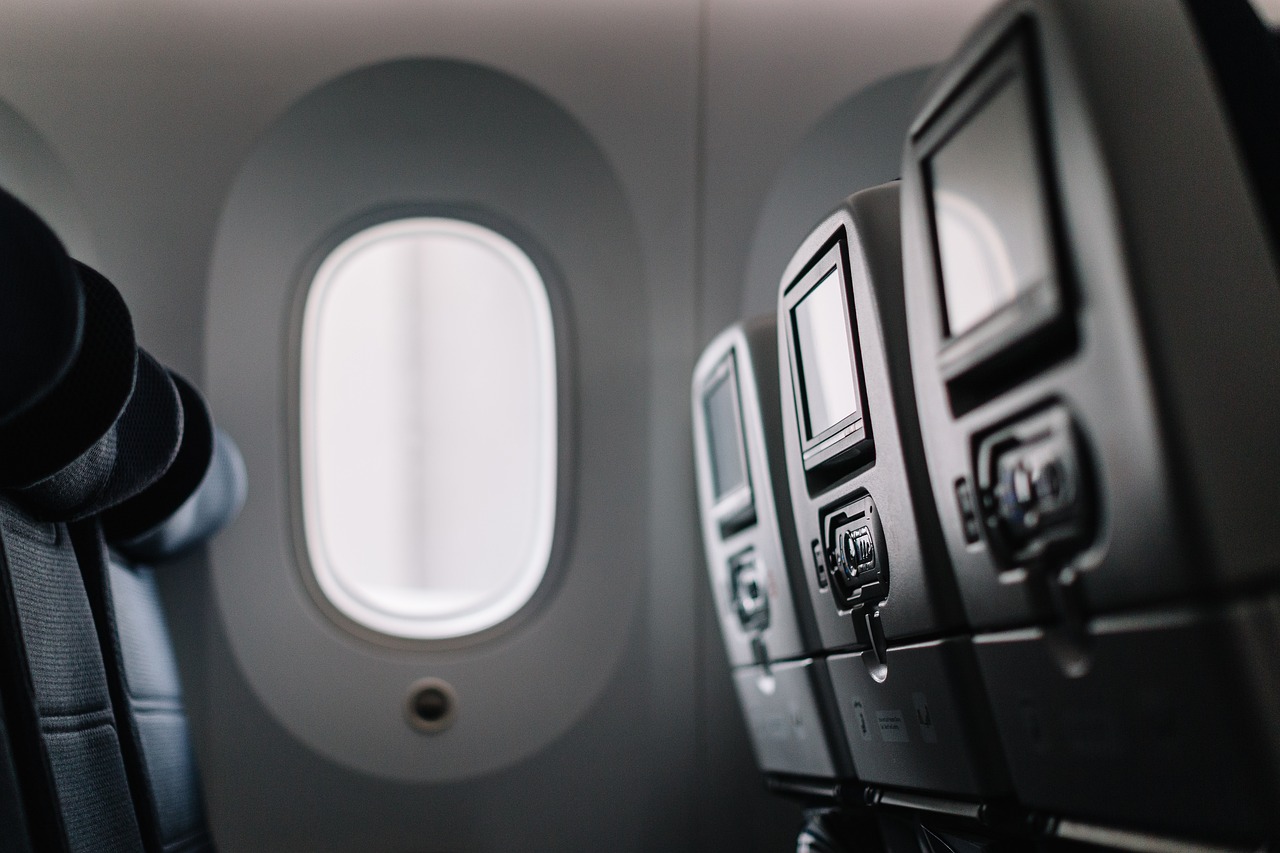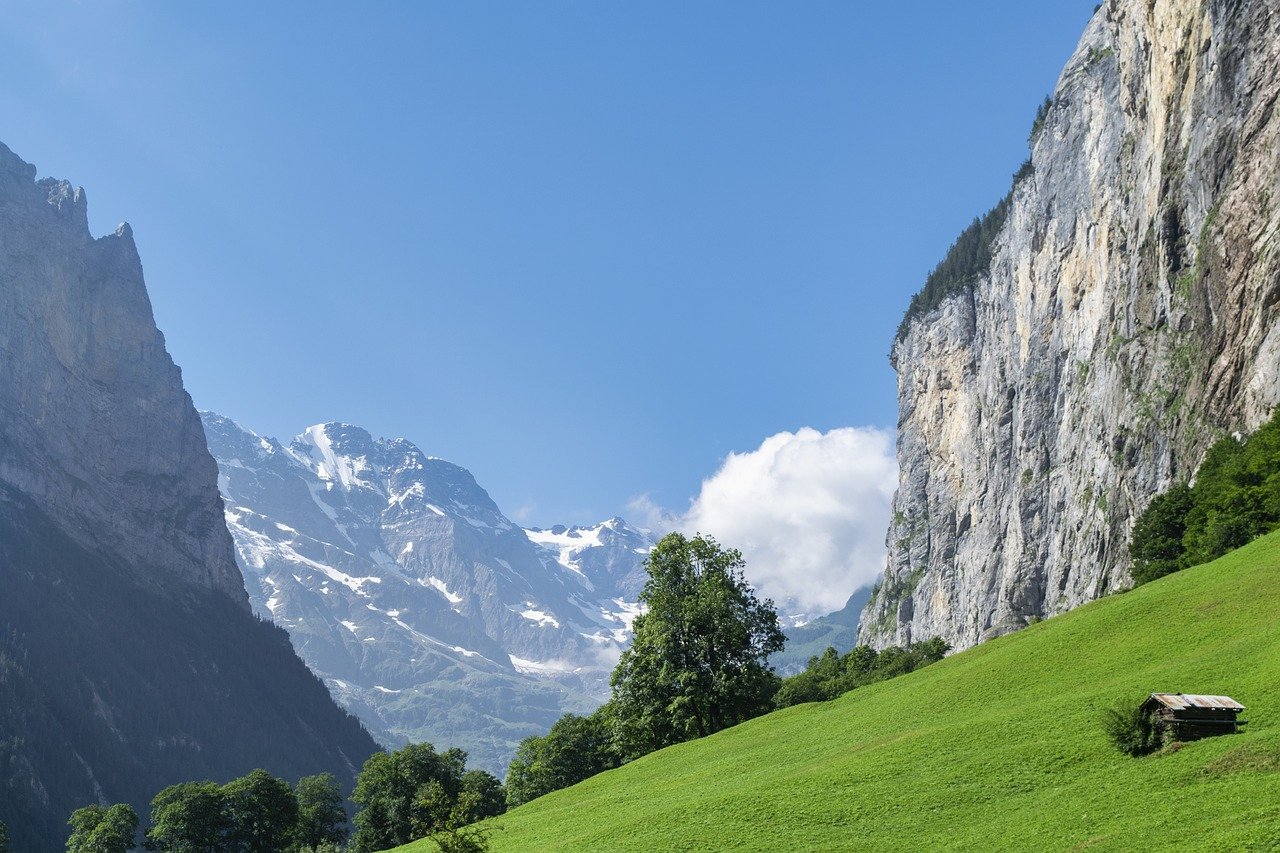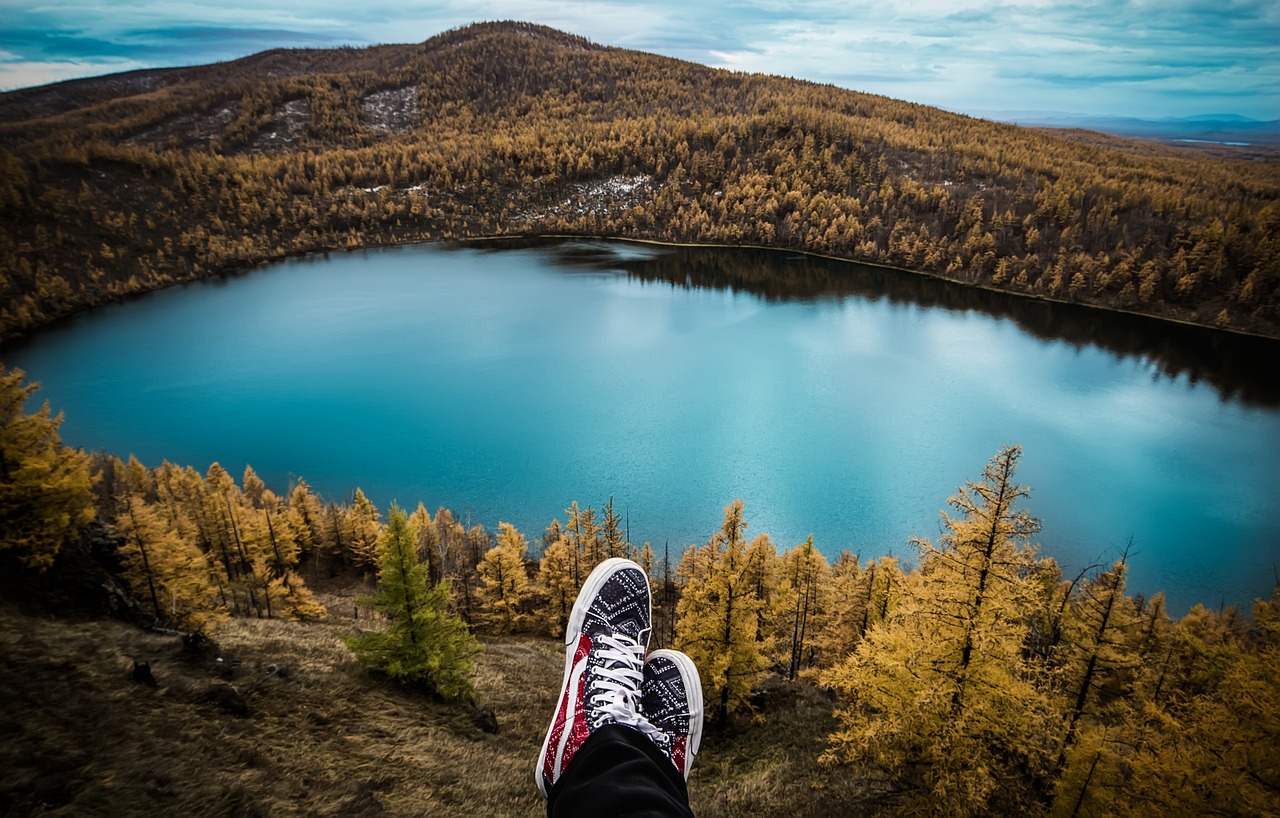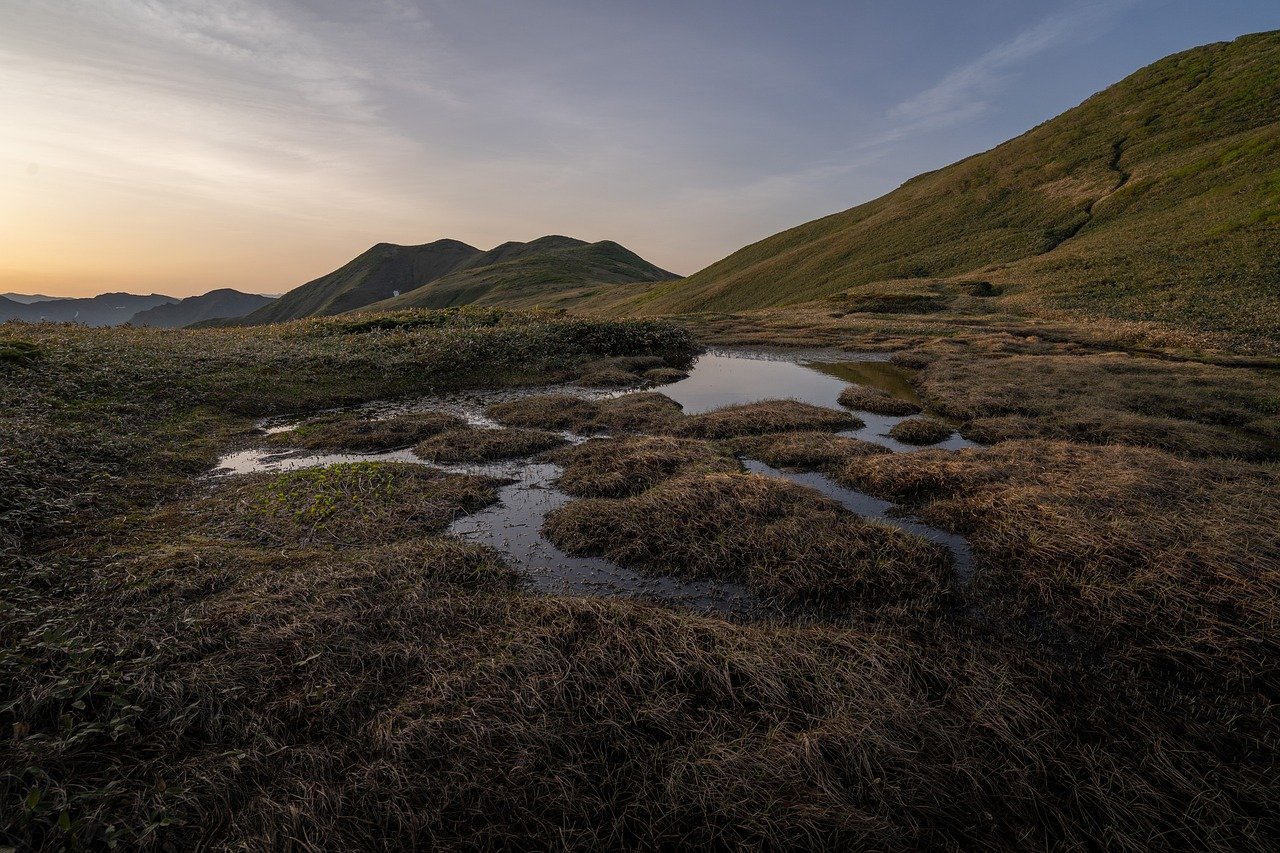The Trend of Combining Travel with Personal Development and Learning
Traveling has long been associated with relaxation, exploration, and adventure. However, in recent years, a new trend has emerged, where travelers are seeking more than just a getaway. They are now combining travel with personal development and learning, turning their journeys into transformative experiences that enrich their lives in profound ways. This shift in mindset has given rise to a movement that values not only leisure but also self-improvement and education.

Rise of Educational Travel Programs
Exploring the growing movement of travelers seeking experiences that not only provide leisure but also contribute to personal growth and education.
Traveling for educational purposes has seen a significant rise in popularity in recent years. Educational travel programs offer a unique blend of exploration and learning, allowing participants to immerse themselves in new cultures while expanding their knowledge and skills. These programs often include language courses, cultural workshops, historical tours, and hands-on experiences that go beyond traditional sightseeing.
By participating in educational travel programs, individuals have the opportunity to gain a deeper understanding of the world around them, develop cross-cultural competencies, and broaden their perspectives. These experiences not only enhance personal growth but also contribute to lifelong learning and self-improvement.
Moreover, educational travel programs foster connections with like-minded individuals, creating a supportive community of learners who share a passion for exploration and education. The collaborative nature of these programs encourages participants to engage in meaningful discussions, exchange ideas, and form lasting friendships.
Overall, the rise of educational travel programs reflects a growing desire among travelers to combine leisure with intellectual stimulation, creating enriching experiences that leave a lasting impact on personal development.

Impact of Experiential Learning
Experiential learning has revolutionized the way individuals approach personal development through travel. By engaging in hands-on experiences, travelers are not only exploring new destinations but also immersing themselves in activities that foster growth and skill development. Whether it's volunteering at a local community project, interning at a foreign company, or participating in skill-building workshops, these experiences have a profound impact on shaping individuals' personal development.
One of the key benefits of experiential learning during travel is the opportunity for individuals to step out of their comfort zones and challenge themselves in new and unfamiliar environments. This process of pushing boundaries and embracing challenges leads to enhanced self-awareness, self-confidence, and adaptability. It allows individuals to discover hidden talents, overcome fears, and develop a growth mindset that is essential for personal growth.
Moreover, experiential learning experiences often involve interactions with diverse cultures, languages, and perspectives. By engaging with people from different backgrounds and immersing themselves in unfamiliar settings, travelers gain a broader understanding of the world around them. This exposure to diversity fosters empathy, cultural sensitivity, and open-mindedness, which are valuable qualities for personal development and global citizenship.
Additionally, experiential learning encourages individuals to apply theoretical knowledge to real-world situations, bridging the gap between academic learning and practical skills. Whether it's learning a new language through immersion, honing leadership skills through project management, or developing teamwork abilities through collaborative initiatives, these hands-on experiences enhance individuals' competencies and prepare them for future challenges.
Overall, the impact of experiential learning on personal development during travel is profound and multifaceted. It goes beyond traditional sightseeing and relaxation, offering a transformative journey of self-discovery, skill enhancement, cultural enrichment, and global awareness. By embracing experiential learning opportunities while traveling, individuals can unlock their full potential, broaden their horizons, and embark on a lifelong journey of growth and learning.

Wellness Retreats and Mindfulness Travel
Wellness retreats and mindfulness travel have gained significant popularity in recent years as more individuals seek holistic experiences that prioritize mental and physical well-being. These unique travel experiences focus on promoting relaxation, rejuvenation, and self-care through a variety of wellness activities.
One of the key aspects of wellness retreats is the emphasis on mindfulness, which involves being fully present in the moment and cultivating a state of awareness. Travelers are encouraged to engage in practices such as yoga, meditation, and deep breathing exercises to promote mental clarity and reduce stress.
Wellness retreats often take place in serene and natural settings, allowing participants to disconnect from their daily routines and immerse themselves in a peaceful environment. This enables individuals to recharge and refocus, leading to a sense of renewal and inner balance.
Moreover, these retreats offer a range of holistic treatments and therapies aimed at enhancing overall well-being. From spa treatments and massages to nutritional workshops and wellness coaching, participants have the opportunity to explore different avenues for self-improvement and personal growth.
Engaging in mindfulness travel not only benefits individuals on a physical and emotional level but also fosters a deeper connection with oneself and the surrounding environment. By practicing mindfulness and self-reflection during their journeys, travelers can gain valuable insights and cultivate a sense of inner peace.

Adventure Travel for Personal Growth
Embarking on adventures while traveling can be more than just thrilling experiences; it can also be a powerful tool for personal growth and self-discovery. Imagine trekking through dense forests, climbing towering mountains, or navigating challenging terrain – each step taken, each obstacle overcome, contributes to your inner journey of self-improvement. Adventure travel pushes you out of your comfort zone, encouraging you to face fears, build resilience, and discover strengths you never knew you had.
Just like climbing a steep mountain requires determination and perseverance, navigating life's challenges demands similar qualities. The lessons learned during adventure travel – whether it's conquering a fear of heights or learning to trust your instincts in unfamiliar situations – can translate into valuable life skills. These experiences shape your character, boost confidence, and foster a sense of accomplishment that extends far beyond the journey itself.
Moreover, adventure travel offers a unique opportunity for introspection and reflection. In the midst of breathtaking landscapes and adrenaline-pumping activities, you may find moments of clarity and insight that lead to profound personal growth. The solitude of the wilderness or the camaraderie of a group expedition can both catalyze moments of self-discovery and transformation.
Additionally, the challenges encountered during adventure travel provide a fertile ground for personal development. Whether it's learning to navigate unfamiliar territories, adapt to changing environments, or collaborate with fellow travelers, each experience contributes to your growth as an individual. Overcoming obstacles in the wild can empower you to tackle obstacles in your everyday life with newfound courage and resilience.
Adventure travel is not just about seeking thrills; it's about embarking on a journey of self-exploration and personal evolution. By pushing your physical and mental boundaries, you open yourself up to a world of possibilities and opportunities for growth. So, pack your bags, lace up your boots, and set out on an adventure that promises not only excitement but also profound personal growth.

Culinary Tourism and Cultural Immersion
Culinary tourism and cultural immersion have become increasingly popular among travelers seeking unique experiences that go beyond traditional sightseeing. These immersive journeys allow individuals to delve deep into the heart of a destination, exploring its culinary traditions and cultural heritage.
Imagine strolling through bustling markets, sampling exotic flavors, and learning the secrets behind traditional recipes from local chefs. Culinary tours offer a sensory adventure, tantalizing taste buds and opening doors to new culinary horizons.
Moreover, cultural immersion experiences provide a profound understanding of a place's history, customs, and way of life. By participating in cultural exchanges, travelers can engage with local communities, witness traditional ceremonies, and gain insights into the rich tapestry of a region's heritage.
These experiences not only satisfy the palate but also nourish the soul, fostering a deeper connection to the places visited. Through culinary tourism and cultural immersion, travelers can savor the essence of a destination, creating lasting memories and forging meaningful connections with the world around them.

Environmental Conservation Expeditions
Environmental Conservation Expeditions have gained significant traction in the realm of travel experiences, offering individuals the opportunity to engage in meaningful environmental initiatives while exploring the world. These expeditions go beyond traditional sightseeing and focus on contributing to the preservation of natural habitats and wildlife. Participants actively take part in conservation efforts, such as wildlife monitoring, habitat restoration, and sustainable practices, under the guidance of experts in the field.
One of the key aspects of these expeditions is the hands-on involvement in conservation projects, which allows travelers to witness the impact of their actions firsthand. By working alongside conservationists and researchers, participants gain a deeper understanding of environmental challenges and the importance of biodiversity conservation. This immersive experience fosters a sense of responsibility towards the environment and instills a lasting commitment to sustainable practices.
Moreover, environmental conservation expeditions often provide opportunities for cultural exchange with local communities, enhancing the overall experience. Engaging with indigenous cultures and learning about their deep connection to the land adds a unique dimension to the journey, promoting cross-cultural understanding and respect for diverse ways of life.
These expeditions also offer a chance for personal growth and self-reflection as individuals step out of their comfort zones and face new challenges. The physical demands of conservation work combined with the remote locations of many projects push participants to discover their strengths, resilience, and adaptability. Overcoming obstacles in the field fosters a sense of accomplishment and self-improvement, contributing to overall well-being.
Furthermore, environmental conservation expeditions play a crucial role in raising awareness about environmental issues and promoting sustainable practices. Through direct engagement with conservation projects, participants become advocates for conservation in their own communities, spreading the message of environmental stewardship and the importance of protecting our planet for future generations.

Digital Nomad Lifestyle and Remote Work
The Digital Nomad Lifestyle has revolutionized the way people work and travel, blending professional responsibilities with personal exploration. This modern trend allows individuals to embrace a nomadic lifestyle, working remotely from various locations around the world. Imagine waking up to the sound of waves crashing on a tropical beach while still meeting work deadlines and attending virtual meetings.
Embracing the Remote Work culture opens up endless possibilities for those seeking a balance between work and leisure. Whether it's setting up your laptop in a bustling cafe in Paris or working from a cozy mountain cabin in the Swiss Alps, remote work enables individuals to break free from the traditional office setting and create their own work environment.
One of the key benefits of the Digital Nomad Lifestyle is the flexibility it offers. You have the freedom to choose when and where you work, allowing you to tailor your schedule to maximize productivity and personal fulfillment. This flexibility also extends to travel plans, as you can explore new destinations while still meeting work commitments.
Moreover, the Remote Work lifestyle promotes a healthy work-life balance. By eliminating the daily commute and rigid office hours, individuals can allocate more time to self-care, hobbies, and exploring new cultures. This balance contributes to improved mental well-being and overall job satisfaction.
While the Digital Nomad Lifestyle offers unparalleled freedom and flexibility, it also comes with its challenges. Adapting to different time zones, managing work-life boundaries, and ensuring a stable internet connection are common hurdles faced by remote workers. However, overcoming these challenges can lead to personal growth and enhanced problem-solving skills.
Ultimately, the Digital Nomad Lifestyle and Remote Work culture represent a shift towards a more dynamic and fulfilling way of living and working. It allows individuals to break free from the constraints of traditional office environments, embrace new experiences, and cultivate a sense of independence and adventure in their professional endeavors.

Psychological Benefits of Traveling for Self-Improvement
Traveling for self-improvement offers a myriad of psychological benefits that go beyond just the physical journey. Stepping out of your comfort zone and immersing yourself in new cultures and environments can significantly impact your mental well-being. It challenges your perceptions, broadens your horizons, and cultivates a sense of adaptability and resilience in the face of unfamiliar situations.
One of the key psychological benefits of traveling for self-improvement is the boost in self-esteem and confidence that comes from successfully navigating through different challenges while on the road. Whether it's overcoming language barriers, trying new activities, or interacting with diverse groups of people, each experience contributes to a greater sense of self-assurance and belief in one's abilities.
Moreover, traveling for personal growth exposes you to a variety of new experiences that can enhance your problem-solving skills and creativity. Adapting to unfamiliar circumstances, making quick decisions, and learning to navigate through unknown territories all contribute to sharpening your cognitive abilities and fostering a more innovative mindset.
Traveling also provides an opportunity for introspection and self-reflection, allowing you to disconnect from the daily routine and gain a fresh perspective on your life and goals. The solitude and space that travel offers can help in clarifying your values, priorities, and aspirations, leading to a deeper understanding of yourself and your place in the world.
Additionally, the sense of accomplishment and satisfaction that comes from conquering new challenges during your travels can have a positive impact on your overall well-being. Whether it's reaching the summit of a mountain, mastering a new skill, or navigating through a bustling foreign city, each achievement boosts your sense of fulfillment and happiness.
In conclusion, the psychological benefits of traveling for self-improvement are profound and transformative. By embarking on journeys that push you out of your comfort zone, expose you to new experiences, and challenge your perceptions, you not only enhance your mental resilience and adaptability but also foster a deeper sense of self-awareness and growth.
Frequently Asked Questions
- What are educational travel programs?
Educational travel programs are trips that combine learning opportunities with traditional travel experiences. These programs often include language courses, cultural workshops, and historical tours to provide participants with a deeper understanding of the destinations they visit.
- How can experiential learning impact personal development?
Experiential learning, such as volunteering, internships, and skill-building activities during travel, can positively impact personal development by offering hands-on experiences that foster growth, resilience, and new perspectives.
- What are wellness retreats and mindfulness travel?
Wellness retreats and mindfulness travel focus on promoting mental and physical well-being through activities like yoga, meditation, and spa treatments. These experiences aim to help travelers relax, recharge, and cultivate a sense of mindfulness.
- How does adventure travel contribute to personal growth?
Adventure travel, which includes activities like hiking, rock climbing, and wilderness expeditions, can contribute to personal growth by challenging individuals to step out of their comfort zones, build confidence, and discover their inner strengths.
- What is culinary tourism and cultural immersion?
Culinary tourism and cultural immersion involve exploring diverse cuisines and traditions while traveling to new destinations. These experiences allow travelers to learn about different cultures through food, local customs, and interactions with residents.
- How do environmental conservation expeditions promote sustainable travel?
Environmental conservation expeditions combine travel with efforts to protect the environment, promoting sustainable practices and raising awareness about conservation issues. Participants engage in activities that help preserve natural habitats and support local communities.
- What is the digital nomad lifestyle and how does it relate to travel?
The digital nomad lifestyle involves working remotely while traveling to different locations. This lifestyle allows individuals to blend work with exploration, enabling them to experience new cultures, environments, and professional opportunities.
- What psychological benefits can traveling offer for self-improvement?
Traveling can offer psychological benefits for self-improvement by enhancing self-esteem, adaptability, resilience, and overall well-being. Experiencing new environments, facing challenges, and embracing unfamiliar situations can lead to personal growth and self-discovery.



















